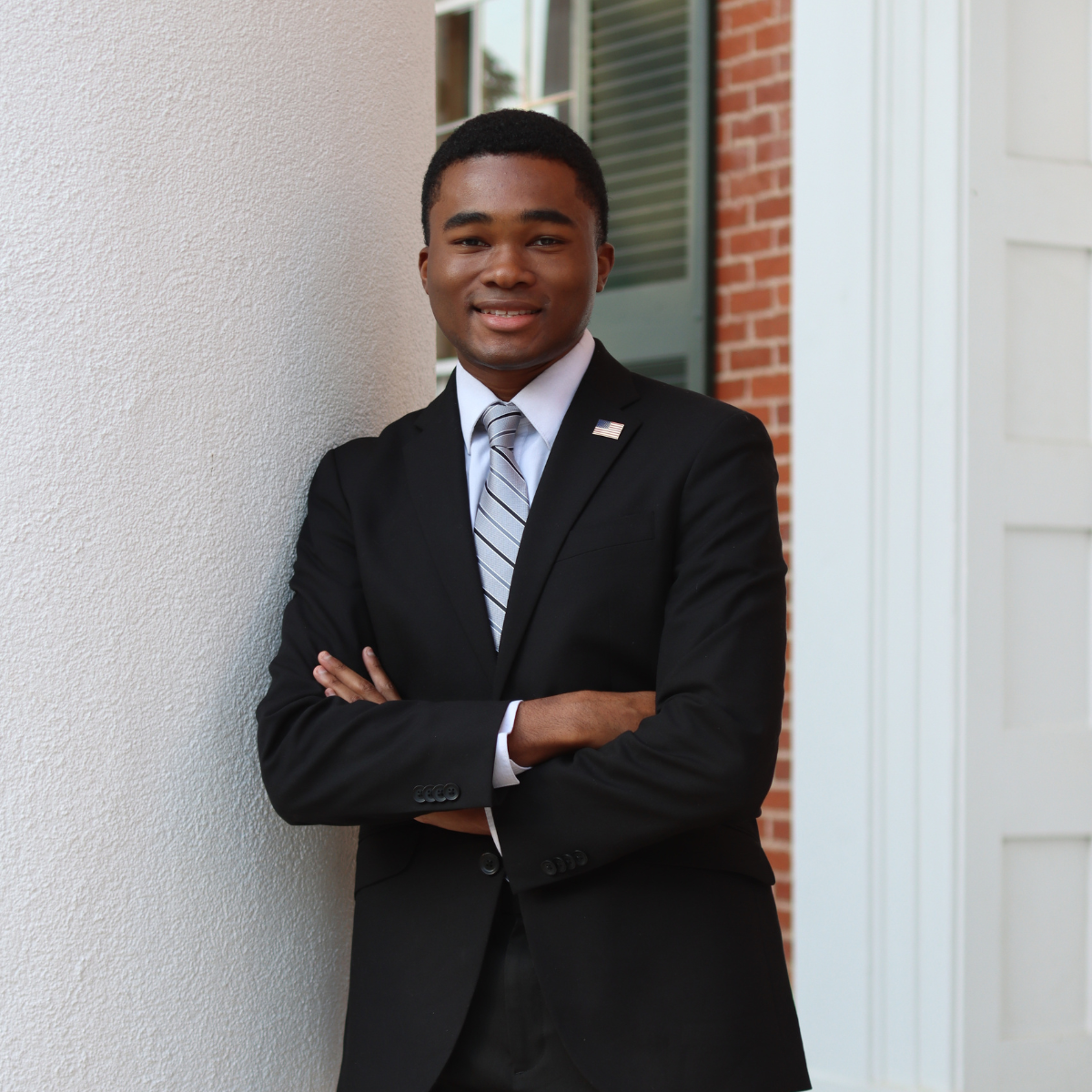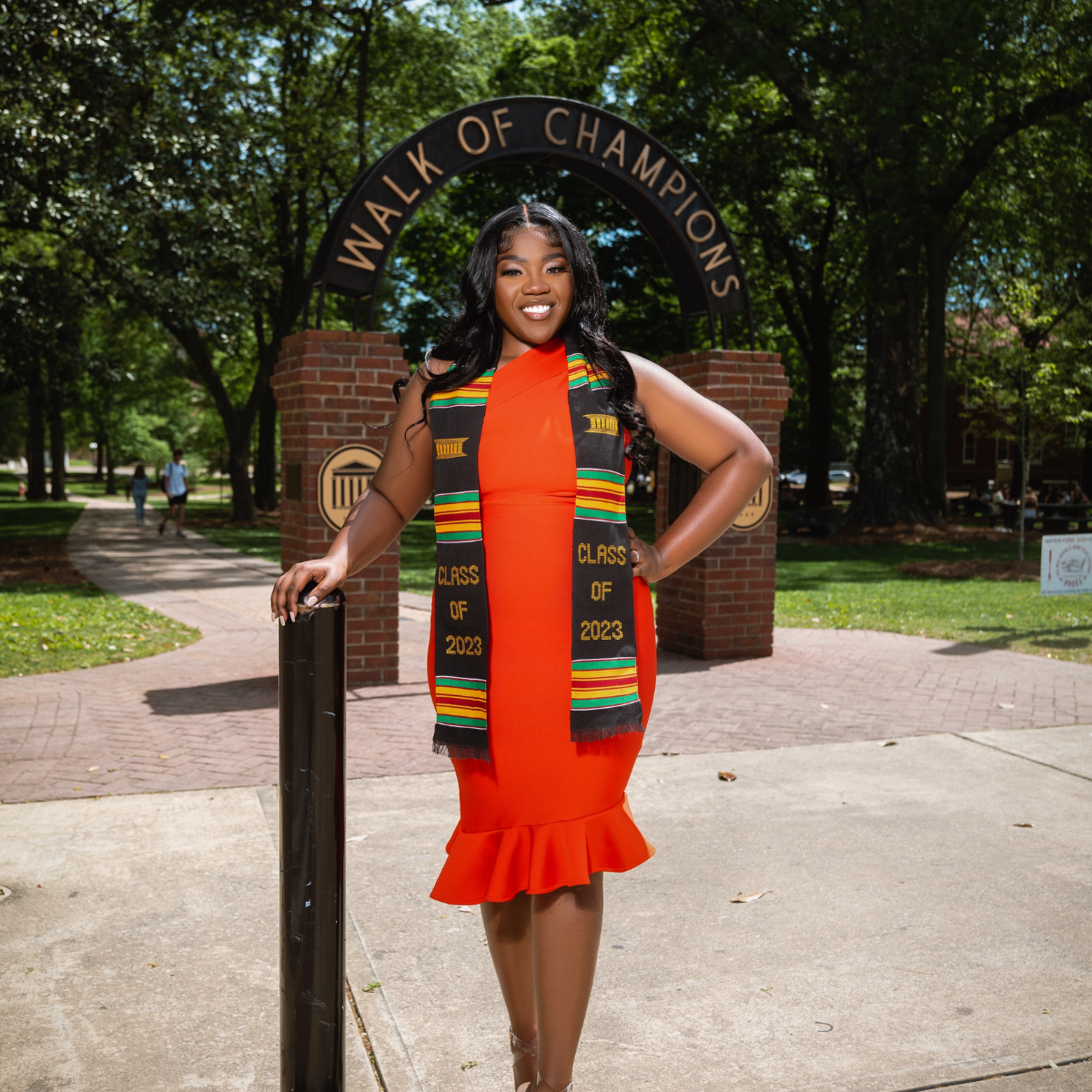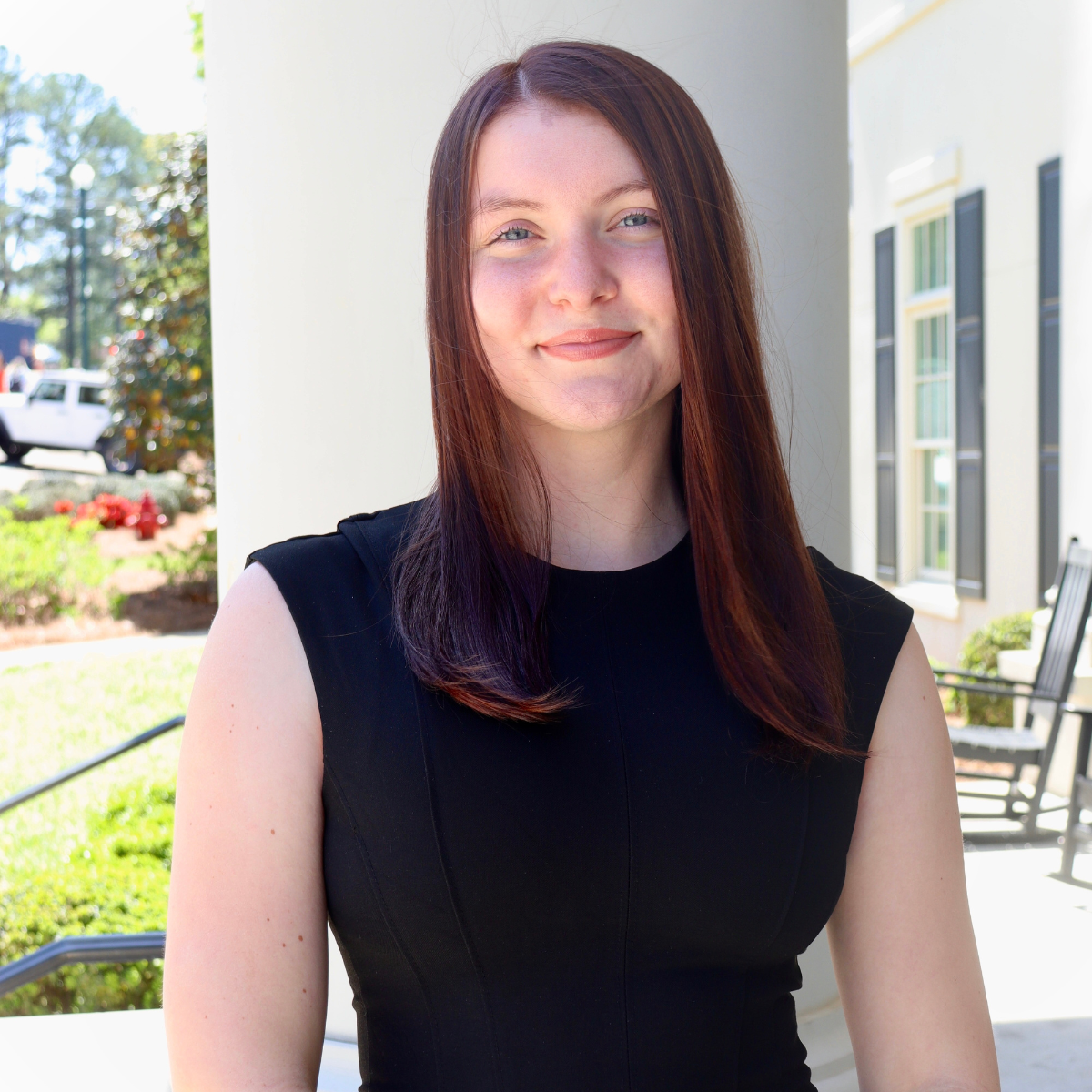How the ONSA Works
Explore below to learn more about national scholarships and fellowships and how to apply!
What is a National Scholarship or Fellowship?
National scholarships are competitive awards that reward scholastic achievement and civic engagement. These prestigious awards are funded by external sources such as government agencies or non-profit organizations to support specific missions. Therefore, determining which scholarship to apply for often depends on how closely your own intellectual and professional goals align with the mission of the funding organization.
- For example, the Goldwater Scholarship is the premier award in the U.S. for high-achieving undergraduate STEM majors who intend to pursue research careers, while the Truman Scholarship supports exceptional undergraduate leaders who intend to pursue careers in government or public service.
Building Confidence Through Mentorships and Support
Watch the video below to learn how ONSA has helped Ole Miss students succeed.
Hear from Some of Our Awardees!
How ONSA Helps You
The Office of National Scholarship Advisement (ONSA) supports and advises students applying for a select number of competitive national and international merit-based awards.
Applying for major scholarships is like taking a 3-credit course, expect 30-50 hours of work.
You will:
- Reflect on your background and goals
- Explore matches with major scholarships
- Develop educational/professional strategy (both with and without a major scholarship in the picture)
- Research possible programs of study or projects to propose
- Discuss plans with mentors, faculty, and advisors
- Request letters of recommendation and transcripts in a timely manner
- Write and revise application materials
- Meet with ONSA mentors
- Revisit your application and revise again!
- Submit the complete application by the Campus Deadline
- Prepare for the Nomination Review
If you are nominated by ONSA, you will:
- Refine the final application packet
- Upload all digital material to scholarship portals
- Information source by supplying you with scholarship details, procedures, and timelines. We'll also help you determine eligibility, fit, and competitiveness.
- Tutor by reviewing drafts (if allowed by award), suggesting revisions, reminding you of program expectations, and helping you prepare for interviews.
- Facilitator by offering guidance for letter-writers, holistic application oversight, and reminding you of internal deadlines and required materials.
- Coordinator by making sure your materials are received before the Campus Deadline, distributed to nomination committees, and we'll help with the coordination of nomination interviews.
Additional ONSA support includes:
- Overseeing the writing of the University letter of endorsement (if required)
- Monitoring completion of all parts of the application (Letters, transcripts, etc.)
- Submitting completed applications to the program, if the program requires
- Co-ordinating mock interviews
Completing these applications will require in-depth research.
For instance:
- The UK Scholarships stress that the program and degree should suit the applicant’s background and goals.
- Truman, Goldwater, and Udall have similar expectations.
- The Fulbright application requires a project that suits the country and the applicant’s background and is doable in the timeframe- this may take some reflection and additional research.
Make sure the scholarship is a good fit for you. Ask yourself: What is the candidate profile of the scholarship you are applying for?
- The level of leadership and/or achievement in the field expected by most scholarships is exceptionally high (especially for Truman, Rhodes, Marshall, Goldwater, and NSF GRFP).
- Do you have demonstrable impact in your field/community already?
- Do you have teaching experience or an interest in cultural exchange?
- Independent work is the best evidence of genuine interest, capability, and/or leadership skills. If your record of achievement is solely summed up by successful classroom experiences, you may not be a strong contender in most of these competitions.
- Good examples of independent work can include work accomplished through a thesis, research project, internship, and/or the creation and initiation of a community program.
- For some, but not all scholarships, applicants need a high GPA of 3.8 at a minimum.
University nomination is often required. Applicants must contact ONSA far ahead of the Campus Deadline to discuss candidacy.
- Applicants will submit a completed application to ONSA.
- A university campus committee will review the applications, interview candidates, and may or may not nominate them.
Remember: Many programs limit the number of students who may be nominated.
Getting Started on Your Application
There are many things you can do to become competitive for awards such as national and international scholarships and fellowships. It all starts with becoming engaged with your classes, your professors, and your community–starting your freshman year!
Begin by visiting our Getting Started and What to Expect pages! Take your time to read through these resources carefully to gain a better understanding of the competitive scholarship application process.
Also, read over the Scholar Development Tips below to begin preparing yourself as an undergraduate!
- Take charge of your education. Do not wait for opportunities to land in your lap. It’s up to you to make sure you aren’t just another face in the crowd!
- Take advanced courses early and often. Be strategic about the classes you choose, do not only choose the ones that fit your schedule.
- Avoid large lecture classes when possible. If it can’t be avoided, be purposeful in your interactions with the instructor and take particular advantage of the professor’s office hours.
- Work on your writing skills. Good, clear writing will help you in every stage of your future.
- Develop mentoring relationships with faculty, staff, and others.
- Take multiple courses with the same faculty if you like them.
- Attend academic events such as brown bag seminars and public lectures to meet faculty and students who share your interests.
- Find ways to present your research, public service, community impact, and independent projects.
- Make an impact. Get involved in extra-curricular activities that connect to your future aspirations–don’t just join an organization for a line in your CV/resume.
- Use your summers wisely. Participate in research (on campus and off—NSF, REUs), internships, and community service projects in the U.S. or abroad.
- Study abroad. Be purposeful in gaining active experience beyond tourism.
- Subscribe to newsletters across campus and stay informed of events and opportunities on campus and in your field of interest.
- Apply for many scholarships. The more applications you complete the easier it will get.
- Read widely and often.
Follow these steps and schedule your appointment to begin your application journey!
STEP 1: Look through the Handbook or Website to identify potential awards.
- Each award description in the handbook or website includes eligibility, a description, application procedures, and links to videos/webinars.
- Some awards identify “institutional endorsement required” or “institutional endorsement recommended”. In order to be endorsed by ONSA and the university of Mississippi you must have a complete application by the campus deadline.
STEP 2: Complete the Fellowship Interest Form (REQUIRED)
STEP 3: Make an appointment with a Fellowship Advisor (REQUIRED)
STEP 4: If you apply for a national fellowship, you will need to complete the ONSA Advising Agreement: Expectations, Permissions, and Waiver (REQUIRED)
Letters of Recommendation
Ask early and ask in person
Ask well in advance of the deadline: three weeks minimum. Also, ask in person, if possible. Asking for a recommendation at the last minute will earn you a short, hurried letter that might not be as helpful as it could have been had you given your recommender ample time to write an excellent letter.
- If the person you ask to be a recommendation says “No”, do not press. Trying to talk professors or individuals into writing a letter they do not wish to write or feel comfortable writing will not serve you well.
Instead, thank them for their time, and approach another individual whom you feel would be a good recommendation.
Make sure it is a glowing and personalized recommendation
Ask someone who knows more about you than just your GPA or information gleaned from your resume. Ask someone who can tell positive stories about your academic, community, or campus involvement.
Make it easy for them to write your recommendation
Be sure to talk with your recommender to discuss the scholarship application.
When you meet, outline scholarship selection criteria and provide input about what should be stressed in the letter. Be sure to mention critical information. For example, share with you recommender that the scholarship is aimed at first-generation students or that leadership should be emphasized. This will affect the shape of the letter and increase your chances of applying successfully.
Also, be sure to mention any extenuating circumstances that might explain a weakness in your application. If your grades are not flawless, but you are working 10, 20, 30 hours a week to make ends meet, you should make sure your recommender mentions this.
Provide your recommender with the following:
- A copy of the application that includes your essay answers, if at all possible. If your application is not yet complete, then provide a general personal statement. If you are applying to a variety of scholarships, send an email with a brief description of each one and what the recommendation letter should emphasize.
Check the National Scholarships List on ONSA’s website for more details. - A current resume or a list of your activities and honors.
- Official recommendation forms or links. Be sure to complete any sections that pertain to you.
Show gratitude
Definitely say Thank You! Send the professors or individuals who took the time to write your recommendation a thank you letter or note, and keep them updated on the outcome of your application.
Before applying for a Fulbright Award, it’s essential to understand the affiliation process and prepare thoroughly.
Keep the following key points in mind as you navigate your application:
Closely read your program’s award profile
Closely read your program’s award profile
Each Fulbright Award’s requirements vary slightly. Make sure to fully read the host affiliation requirements in the summary of the country to which you are applying.
- According to Fulbright, “Affiliation arrangements vary by country and may not be required at the time of application.
- Carefully review the affiliation information provided in the award summary for your host country.
- All academic grantees must have an affiliation in the host country.
Countries differ in the kinds of host affiliations that are acceptable. Examples of affiliations include universities, laboratories, libraries, non-governmental organizations, and so on. Pay special attention to the requirements in some countries to attend classes and/or affiliate with academic institutions.”
You can find your specific award using the Award Search engine on the Fulbright website.
Choose the most appropriate affiliation for your project
Your affiliation is the person who commits to hosting you in your chosen country. In other words, the affiliation is your host country advisor who will provide support for your project. “If the proposal contains a strong research component, you must have host country contacts that can support the research, provide access to required resources, and/or advise you during the grant period.
It is your responsibility to identify, contact, and secure an affiliation from a potential adviser.”
Fulbright identifies several avenues for finding your affiliation/host country advisor:
- Faculty at your home campus.
- International students.
- Visiting Fulbright Professors in the U.S. or U.S. Fulbright Scholars who had grants to your host country. Directories are available here.
- Internet searches of faculty at potential host institutions with your interests, or organizations in the host country that work with issues related to your topic.
- Other U.S. academics with expertise in the location/subject matter of the proposed project.
- Contacts from previous experience abroad.
- Educational Advising sections of Embassies or Consulates of your potential host country.
Start your Fulbright affiliation process early
It takes time to identify an affiliation, and it takes time for that person to complete their affiliation letter. Fulbright requires the affiliation letter by the application deadline.
- You need to begin looking for your affiliation several months before the deadline to give yourself plenty of time to meet with the affiliation via phone call, Zoom, or in person if possible, form a positive working relationship, and thoroughly discuss and make plans for your research.
Request the affiliation letter
Once you have identified your chosen affiliation, reach out to them and ask if they are willing to write you an affiliation letter. You should also send them a copy of your Statement of Grant Purpose.
The affiliation letter should:
- Indicate the author’s willingness to work with you on the intended project
- Speak to the feasibility and validity of the project that is being proposed
- Provide a description of any additional resources to contacts that the advisor an provide to support the project
Submitting the letter:
- “Scanned versions of the original hard-copy letters with hand-written signatures should be uploaded into the application. Letter writers can either send the original hard-copy letters or electronic copies to the applicants.
- Since affiliation letters are not confidential, you will upload the letter yourself into the online application system. Affiliation letters written in a foreign language must be translated into English and both the original letters and the English-language translations must be uploaded into the application. An ‘official’ translation of the letter is not required.
- Instructions on uploading letters of affiliation are available in the Fulbright online application system. IIE will not accept any affiliation letters via email or fax.”
Letter formatting:
- “The affiliation letter must be printed on institutional letterhead and must be signed by the author.
- Copies of email correspondence will not be accepted.
- Do not upload any documents other than a letter of affiliation to this field of the application. Uploading extraneous materials to this field may result in your application being deemed ineligible.”
Show gratitude
Definitely say Thank You! Send your affiliation who took the time to write your affiliation and commit to host you in their country a thank you letter or note and keep them updated on the outcome of your application.
Frequently Asked Questions (FAQ)
A national scholarship or fellowship is an award for study, research or travel that is offered by an agency to students throughout the United States, as opposed to a merit-based award offered by a particular educational institution.
- These awards tend to be highly competitive and are often specialized, with specific eligibility and selection criteria.
- Most are intended to support graduate study, but a few support undergraduate work.
You can find a list of them here. Take the time to familiarize yourself with the awards, the eligibility requirements, and the application process.
It varies depending upon the scholarship but most are highly competitive.
- For example, the Rhodes Scholarship has a selection rate of about 3% in some years. Most applicants will be highly qualified.
There are workshops held throughout to introduce each scholarship and application process. You can also explore the links to the foundation websites for each award and read about the application process, and see the biography of recent grantees.
It is highly advised that you meet with Dr. Ibrahim as soon as possible to explore your options and talk about choosing an academic trajectory that will help you be as competitive as possible.
Some national scholarships require you to be nominated by the University of Mississippi. For those scholarships, you must first submit an application to the ONSA office and participate in an interview, if necessary.
These scholarships have an institutional deadline that is usually much earlier than the scholarship’s national deadline.
Alumni are welcome to meet with Dr. Ibrahim and discuss the application process.
Students should expect to invest a significant amount of time and effort into the process. Some scholarships require less effort than others, but successful students often invest many hours working on application materials for months before the deadline.
Start early. Most national scholarships require a strong academic record, research experience, public service, and leadership.
- Academics: Take challenging classes. Develop meaningful relationships with your faculty members since they will be the ones who write your recommendations. Faculty are excellent resources for finding research or service projects and for directing you toward higher-level courses or readings. Find out what you are passionate about and immerse yourself fully in that subject. Explore challenging related classes. Academics are always important in national scholarship competitions, and so taking challenging classes and maintaining good grades is vital. Most national scholarships are for graduate school, so you should be taking a rigorous academic program that will make you a competitive candidate for graduate studies.
- Research: Conduct research or work with faculty as a research assistant. Use your summers to conduct research or work as an intern. Offer to be a research assistant to professors who are doing important research in your chosen academic field. Look for community-based research projects or paid summer research programs.
- Public Service: Get involved in public service. Don’t wait to be told what to do; take charge, create a nonprofit, recognize needs in your community, and find ways to address those needs. Look at other national programs for models that might work in your community. Think big. Think sustainable–how will your work continue once you graduate?
- Leadership: Student government is one way to be involved in your community. But there are many ways to lead–clubs, organizations, fraternities and sororities, and honor societies. How can you be a change agent and start transforming the communities or issues you care about? How can you rally the support of others in order to make the largest impact possible? Look to other national programs for models and inspiration.
In addition, you need to be informed about current events. Read a good periodical newspaper daily. Read current event magazines like The Economist, The Atlantic, The New Yorker, The New Republic, or The American Review. Read with a critical eye for bias. Read scholarly journals in your subject area.
Finally, good communication skills are vital. Writing is the key component to every application, and many scholarships require an interview if you are named as a finalist. Take advantage of every opportunity to improve your writing and public speaking abilities.

Confidence and Clarity: What Selection Comittees Really Want
"Like Mama Odie from The Princess and The Frog says, "You gotta dig a little deeper! Find out who you are." That is the advice I would give to a future applicant. Understand what it is that you want and go full in with your whole being. You can do this through journaling, taking silent walks through the park, or even talking with a friend or family member about your ultimate goals in life and the steps you want to take through the journey. This will help rule out if you are simply pursuing something because of the glamour of it or if it is something you are truly passionate about. Selection committees are not strictly looking for unique, extraordinary, exquisite people and experiences, rather they are looking for the confident, self-aware individual. Therefore, show them who you are because we can all preach about our truly not so distinct experiences, but nobody can talk about you like you can."
Edward Hunter
Political Science Major, Philosophy Minor; 2025 CSPC At-Large Fellow



